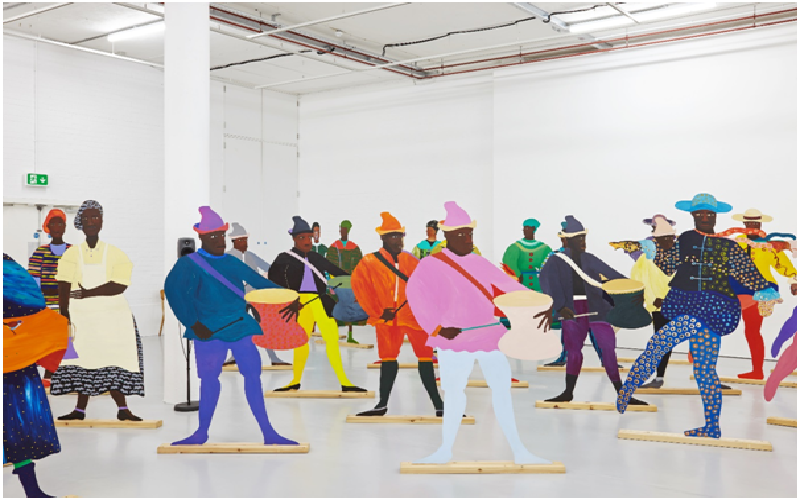The dean of Wimbledon College of Arts has congratulated alumunus Lubaina Himid after she made history by becoming the oldest person and first woman of colour to win the prestigious Turner Prize.
Previously described as “the underappreciated hero of black British art” by the Daily Telegraph, Himid, 63, first came to prominence during the black arts movement in the 1980s.
The Zanzibar-born, Preston-based artist trained as a set designer at Wimbledon College of Arts.
In response to the Turner Prize announcement, Sophia Phoca, the college’s dean of fine of art said: “We are thrilled that alumna Lubaina Himid has won this eminent prize; she is an inspirational role model for our students, not only because of her innovative approach to fine art, but because of her commitment to exploring diversity in our culture.”
A Wimbledon College of Arts spokesman described how, after practicing for more than four decades, Himid’s career was finally achieving mainstream recognition.
This recognition is, in part, thanks to the Turner’s lifting of its 50-or-younger age restriction.
In a bid by Tate Britain to celebrate artists who had previously been neglected by the mainstream, it was the first time since 1991 that artists over 50 were eligible for the prize, which was formerly infamous for awarding outrageous YBAs (Young British Artists.)
Fellow Wimbledon College of Arts graduate, 52-year-old Hurvin Anderson, was also shortlisted.
On Himid’s work, Wimbledon College of Arts’ spokesman said: “She often takes her paintings off the gallery wall so that her images become objects that surround the viewer.
“Whether working on Guardian newspapers or directly onto porcelain tableware, Himid continually subjects painting to the material of everyday life in order to explore black identity.
“Himid’s work appeared on the January 2017 cover of Frieze magazine and it is for her recent shows ‘Invisible Strategies’ at Modern Art Oxford, and ‘Navigation Charts’ at Spike Island, Bristol, that she has been awarded the Turner Prize.”

On the award-winning exhibitions, Alex Farquharson, director of Tate Britain, told the Guardian: “Together they offered a great summation of her practice over the last few decades and also revealed how vital her work is at the present moment.
“They speak to the present moment which has been one of division both in Britain and in America.”
Speaking to BBC News after the ceremony in Hull, the current UK City of Culture, Himid said: “I was overlooked by critics, by press, but I was never overlooked by art historians or curators or other artists.”
Himid revealed she would use the £25,000 prize money to commission other artists and, perhaps, buy the odd pair of shoes.
